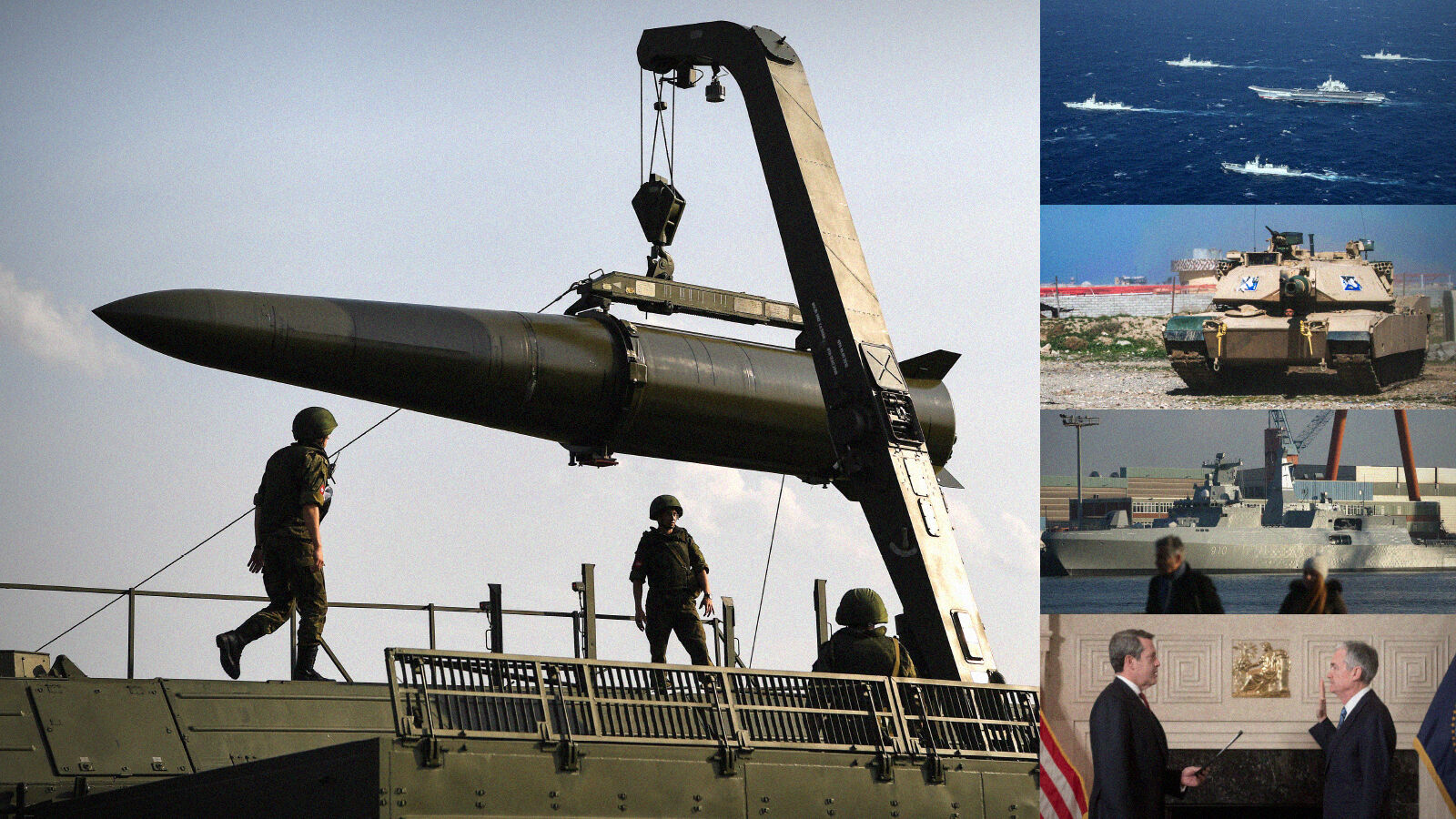
This Week: Five Events You Need to Know (February 18)
Here are five of the most important news stories this week, as well as relevant links to the full articles and videos here on theTrumpet.com.
Russia’s Nuclear Weapons Deep in Europe ‘Should Hardly Be Cause for Concern’
On February 5, Lithuanian President Dalia Grybauskaitė told reporters that Russia’s nuclear-capable “Iskander missiles are being stationed in Kaliningrad for permanent presence.” The sophisticated missiles have a range of up to 250 miles and can carry ground-penetrating bunker busters, electromagnetic pulse weapons and nuclear warheads. “Half of all European countries” are within range of the Iskander, Grybauskaitė said. Russia confirmed that it has installed new Iskander missile systems in Kaliningrad, but government spokesman Dmitry Peskov said Grybauskaitė and other Europeans are wrong to criticize the deployment. Are they really wrong, considering Russia’s recent history?
New Photos Show Beijing’s Militarization in South China Sea in Dramatic Detail
Newly published photographs reveal that China has nearly completed its dramatic transformation of seven disputed reefs in the Spratly Archipelago into “island fortresses,” as part of its ongoing effort to control the South China Sea. The photographs reveal naval docks, shelters for anti-ship cruise missiles, barracks, radar networks, airfields, fortified hangars, communication towers, ammunition storage depots, lighthouses and defensive structures, as well as Chinese People’s Liberation Army-Navy and Coast Guard vessels at the islands. In the July 2016 Trumpet magazine, editor in chief Gerald Flurry wrote that China’s aggressive takeover in this strategic region “should alarm the world” because it is “steering the world toward war.”
American Tanks Fall Into Enemy Hands
Iranian soldiers are driving around in American tanks, according to a recent government audit. The United States Department of Defense Office of Inspector General reported on February 2 that the State Department “acknowledged that some U.S.-provided military equipment sent to support the mission, including as many as nine M1 Abrams tanks, had fallen into the hands of Iranian-backed militias that fought against [the Islamic State] in Iraq.” In his January 2017 article “America’s Greatest Defeat—Iran’s Victory,” Trumpet editor in chief Gerald Flurry wrote: “America may have helped drive the Islamic State out of Iraq and Syria—but now America is about to be driven out of Iraq and Syria by Iran! We are about to see a vicious turnaround. In many ways, it has already started.”
Germany Begins Constructing Warships for Israel
Germany’s ThyssenKrupp Marine Systems began construction on February 7 of four advanced warships for the Israeli Navy. The first is scheduled to arrive in Israel next year. All four are projected to be fully operational by 2021, as part of the “main pillars” of Israel’s naval defense—particularly against Iran and its Lebanese proxy Hezbollah. The Trumpet watches this relationship between Israel and Germany not only because the two nations share a common enemy in Iran and not only because of their shared history in World War ii, but also because the Bible prophesies that Israel will heavily entrust Germany with its security.
Can New Federal Reserve Chairman Jerome Powell Save the Economy?
On the same day that Jerome Powell took the oath of office as the 16th chairman of the Federal Reserve’s board of governors, the Dow Jones Industrial Average plunged 1,175 points, its biggest one-day drop in history. To keep inflation low, Powell is expected to raise interest rates three to four times this year. By raising the interest rate that banks charge each other on loans, the Fed hopes to make it more expensive to borrow money, thereby keeping inflation low (which preserves the purchasing power of the dollar). But doing so could also slow economic growth. Regardless of the exact interest rate the Fed sets, the U.S. government must wake up to the fact that it can no longer run huge budget deficits (spending more money than it receives) year after year without damaging financial markets.
“This Week” appears every Sunday. To receive an update on our latest stories in your inbox ahead of time every Friday afternoon, subscribe to the Trumpet Brief daily e-mail. Sign up by clicking here or by visiting theTrumpet.com home page.
